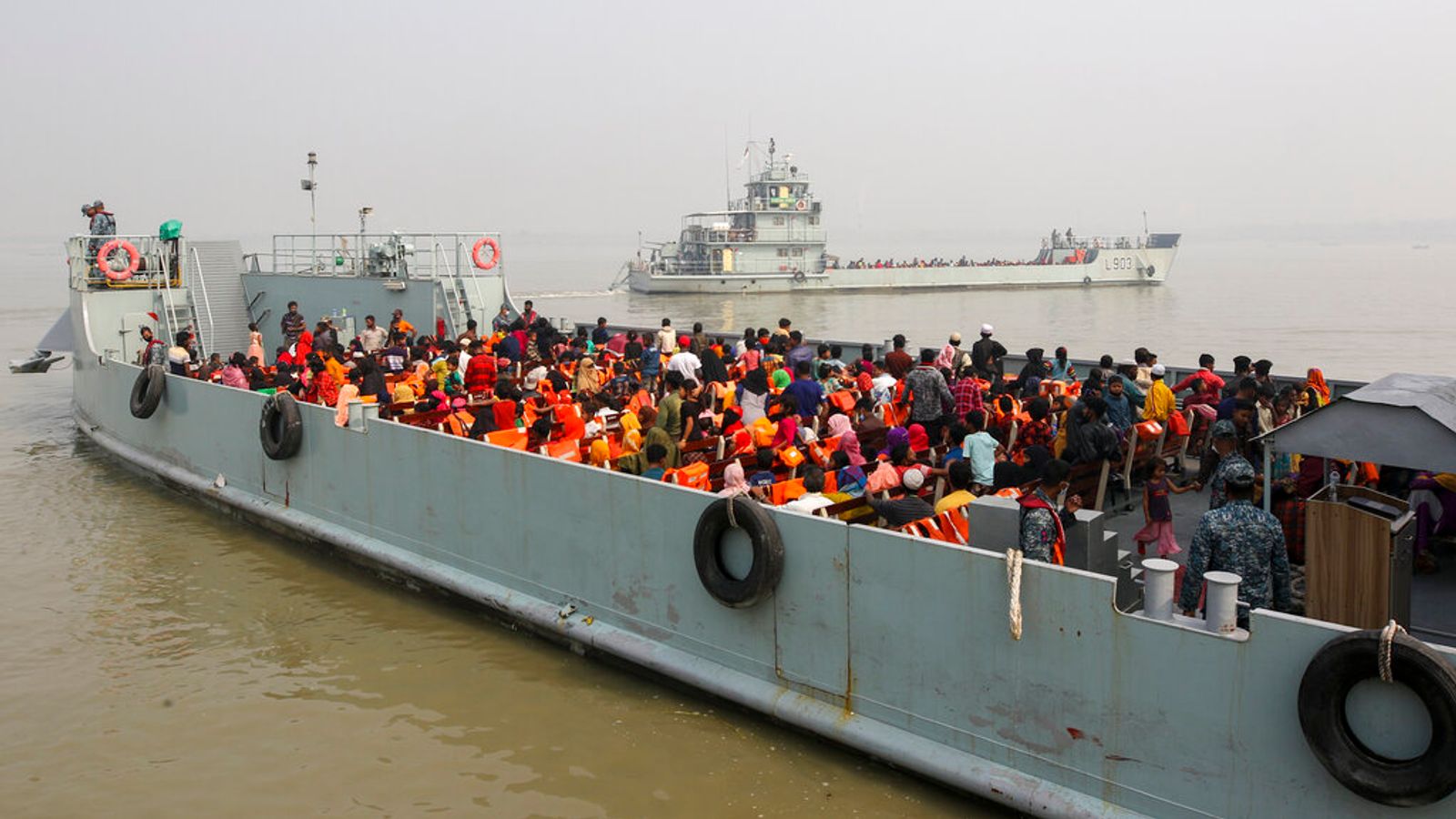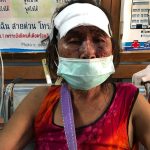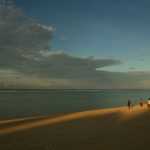Bangladesh has sent a fourth group of Rohingya refugees to a remote island in the Bay of Bengal despite criticism from human rights groups.
Around 2,000 Rohingya Muslims from Myanmar left Cox’s Bazar, where they have been living in the world’s largest refugee camp, on Monday.
They boarded boats at the port of Chattogram and headed to Bhasan Char – an island 21 miles off Bangladesh’s southeast coast, M Mozammel Haque, a commander of the Bangladesh Navy, told reporters.
Bhasan Char was only discovered around 20 years ago and has been largely uninhabited since then.
It is regularly submerged by monsoon rain but now has flood protections, which the Bangladeshi government insists make it safe.
Officials have spent more than £80m on building homes, hospitals and mosques there for the Rohingya Muslims, who fled Buddhist-majority Myanmar in 2017.
The island has enough facilities to accommodate 100,000 refugees, just 10% of the million Rohingyas now living in Bangladesh after military crackdowns in their native country.
There are 120 cluster villages on the island, each home to 12 buildings that can house 16 families. A family has a 12ft by 14ft room with shared kitchens and bathrooms.
The structures are built around 4ft above the ground to avoid possible flood damage.
Bangladeshi authorities say conditions will be better for the refugees on the island than they were in the camps.
But human rights groups claim they are being forced to go there against their will and are at risk of dying if the island floods.
In total, around 7,000 have now been moved there as part of a policy that started in December.
The latest relocation follows the 1 February Myanmar coup that put the military firmly back in control.
The refugees living in Bangladeshi camps say they are now even more fearful of going back to Myanmar.






















